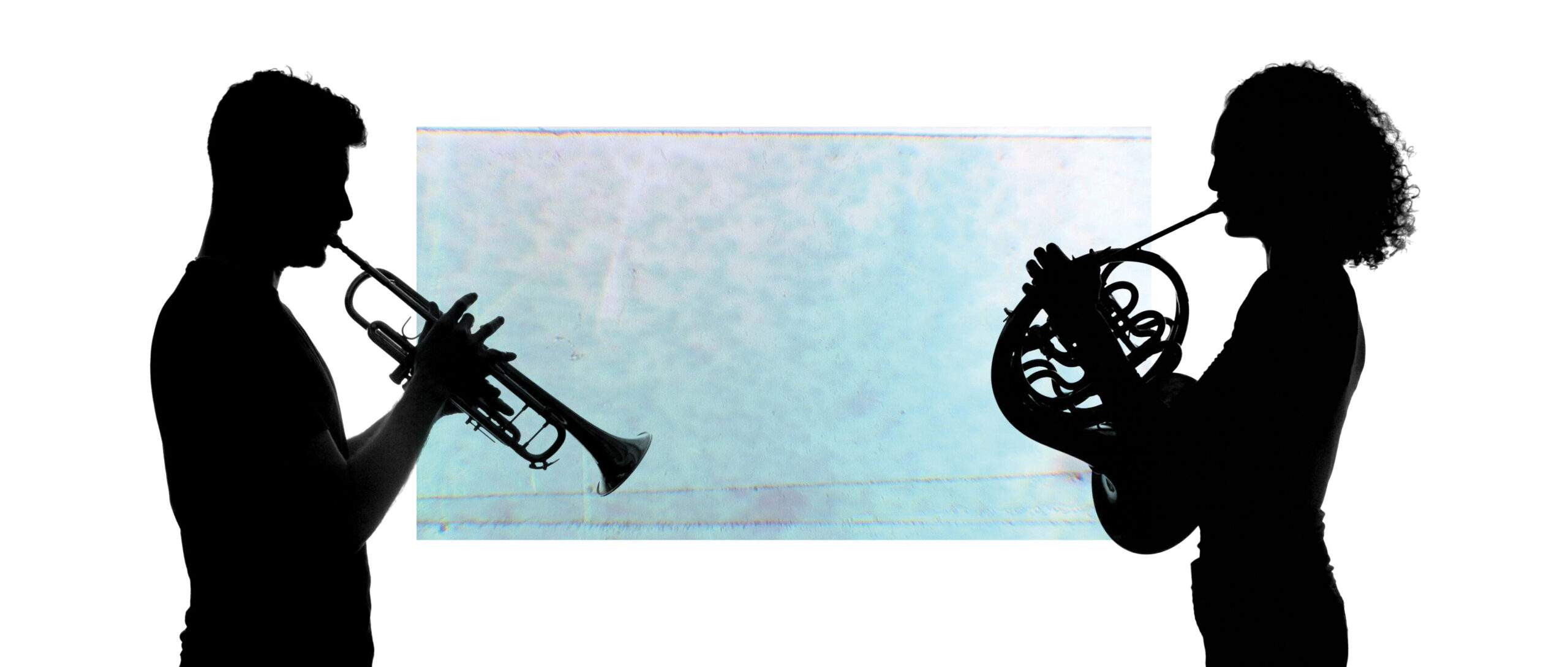Late Aster is reinventing the way pop music is heard. The music the quartet produced on True and Toxic, their debut EP, breaks with convention by allowing the French horn and trumpet to play the hooks and lead melodies that are usually introduced by electric guitars or keyboards in most bands.
The members of the band got together during their years of studying classical music and jazz at university. “I was at Northwestern for a degree in classical trumpet performance,” said Aaron Messing, who also plays keyboards and synthesizers. “Charles [Mueller; guitar, synthesizers], Cameron [LeCrone; drums] and I started a band in college, a standard rock format with hardly any brass. We made some recordings but, after graduation, Cameron and Charles moved East, so we kept up a long-distance musical relationship.”
He added, “I met Anni [Hochhalter, French horn, vocals] in 2013 and we started working on music together. We kept writing songs, but gradually we started feeling the music was missing an important part of who we were as musicians. We kept the same rock/pop vibe but started sprinkling trumpet and French horn into the arrangements. As we experimented with ways to process the brass instruments, we got more comfortable with the new sound. It soon dominated our process and our idea of what the music could be.”
“If we were thinking about being traditional rock stars, it wasn’t working,” Hochhalter said, laughing. “A major turning point was about three years ago. Aaron decided to try recording strictly acoustically—trumpet, voice and piano. We went to New York and recorded two songs—‘Potomac’ and ‘Hole in the Wall’—by Charles and Cam. Once the sound was stripped down, we felt the intimacy of the brass instruments was something we could grow into. Since Aaron and I were trained on brass, we wanted to bring that intimacy to rock or pop music, in a way that it isn’t normally featured. We began experimenting with the sound of brass on top of varied textures created by synthesizers and electronics, to make new palettes of colors and sound. It felt like we hit upon something we could contribute to the world of music that was authentic, new and interesting.”
As the songs took shape, the band began putting together ideas for the project that became True and Toxic. They finished the writing, recording and arranging of the EP during the Covid lockdown. “The songs span a few years and, since we’ve been doing the long-distance thing since 2014, we were prepped for Covid,” Messing said.
The music on the True and Toxic EP—the band calls the tracks sketches rather than songs—delves into the experiences of the past year with a positive approach. “The title is a snippet from one of the songs,” Messing said. “The dichotomy of the two words is emblematic of what the songs represent. This weird juxtaposition we’re all in, politically and socially. We think of music as a durable form of art, so we don’t call them songs. We think about them as sketches on the human condition. It’s flowery language, but it fits.”
The set opens with the title track. Snapping fingers, a thumping mid-tempo electronic heartbeat and interlocking melodies played by trumpet and French horn set up an anxious vocal from Hochhalter. The lyrics describe the tension of being conscious of an impossible situation, one that may not have any solution. “Hole in the Wall” is a dreamy instrumental, with minimal acoustic piano rhythms and ambient horn drones pulsing in and out of a sonic landscape accented by subtle dub effects. A fluttering trumpet solo closes the excursion, slowly fading into the inaudible range.
The musicians use an open-ended arrangement that eschews pop’s verse/chorus structure to examine the feelings of a long-term relationship on “A Minor Fantasy.” A bubbly synthesizer creates a rippling, reggae-like melody for Hochhalter’s breathy vocals as she captures the giddy feelings of infatuation. The horns add a warm, ambient bed to help her describe the doubts and tribulations generated by an intimate connection. Her delighted singing and a return to the warm ambient pulse underlying the music expresses the reconciliation that follows a lover’s conflict.
“Our background isn’t in pop music or rock, so it’s not necessarily intuitive or natural to write songs in the verse/chorus structure,” Hochhalter said. “‘Dichotomy’ started with something like a verse and chorus, but in the end, I think it’s just the same song twice, in different forms.”
Hochhalter and Messing both have strong singing voices, but the vocals and harmonies are often submerged in the mix. “As brass players, we think of any melodic instrument, including voice, as part of the ensemble, rather than a dominating force,” Messing said. “We try to do creative things with voices in the mix. In ‘Can’t Say No,’ there’s a moment where our voices trade off in a way that makes it hard to tell where her voice ends and mine begins. It makes the singing feel less like the prime focus and more a part of the sonic universe.”
“This particular iteration of the band has never played live, but Anni and I play as a duo,” he added. “She works the drum machine and I perform on a minilogue synthesizer. Then we run the French horn and trumpet through guitar pedals and experiment with the sounds. It’s been an interesting journey, following our path from a rock band to an intimate brass pop group.”














